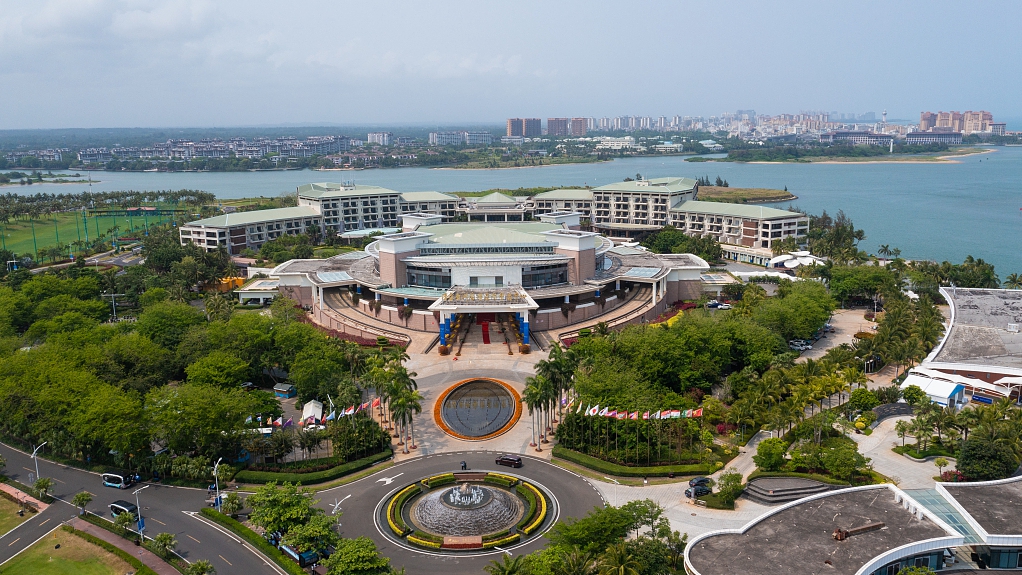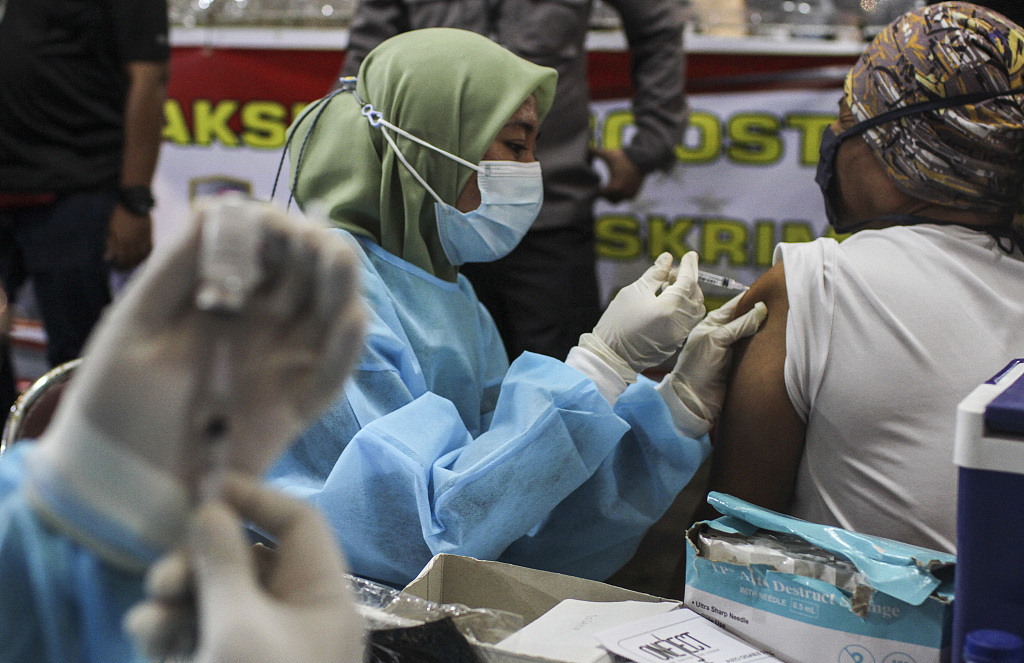
The International Convention Center of the Boao Forum for Asia in Qionghai City, south China's Hainan Province, April 21, 2022. /CFP
The International Convention Center of the Boao Forum for Asia in Qionghai City, south China's Hainan Province, April 21, 2022. /CFP
Editor's note: Christopher Helali is the international secretary of the Party of Communists USA and a PhD candidate in philosophy and China Government Scholar for Sino-U.S. Cultural Communication at Tongji University. The article reflects the author's opinions and not necessarily the views of CGTN.
Boao, a coastal town in China's Hainan Province, held the annual Boao Forum for Asia (BFA) from April 20 to 22. The theme for this year was "The World in COVID-19 & Beyond: Working Together for Global Development and Shared Future."
At the top of the agenda, according to secretary general of the BFA Li Baodong, was the pandemic, the world economy, the green recovery and sustainable development, the digital economy, international cooperation, and the governance progress of regional cooperation in Asia.
The BFA was founded in 2001 and is a non-government and non-profit international organization whose goals include the strengthening of economic ties and cooperation between Asian nations as well as facilitating dialogue on the most important issues facing the region and the world.
Last year's conference, the 20th anniversary forum, was held in April 2021 with the theme "A World in Change: Join Hands to Strengthen Global Governance and Advance Belt and Road Initiative (BRI) Cooperation." It was an important in-person international conference with about 2,000 guests in attendance thanks in large part to China's effective COVID-19 measures and strategy. The 2020 BFA was cancelled due to the pandemic.
This year, COVID-19 still poses a risk to global markets and economic recovery due in part to the uneven distribution of vaccines and the ongoing global supply chain issues. This inequality is felt most acutely by low-income countries, which are at a severe disadvantage and at risk of further negative socio-economic consequences.
First, the global distribution of vaccines and their availability and accessibility will need to be addressed. Many medium to low-income countries have low vaccination rates, leading to various domestic, regional and international issues related to travel, trade and logistics. One thing the BFA will need to grapple with is how to make vaccine distribution more equal and this will require a coordinated effort from the entire international community.

A health officer gives a COVID-19 booster vaccine to a resident in Jakarta, Indonesia, April 5, 2022. /CFP
A health officer gives a COVID-19 booster vaccine to a resident in Jakarta, Indonesia, April 5, 2022. /CFP
Second, questions surrounding vaccine technology and intellectual property will need to be addressed. One of the major hurdles of vaccine distribution has been intellectual property and the proprietary vaccine technologies developed by various pharmaceutical companies. Without addressing patents and intellectual property, it will be very difficult for low to medium-income countries to not only get the vaccine, but even if they have the technology to produce vaccines domestically, they will be unable to do so.
Third is the issue of tariffs. Vaccines and the critical components necessary to produce vaccines have tariffs as they cross borders. This creates economic stress and burdens on especially poorer countries. This will need to be addressed to allow for greater access to vaccines and their technology without creating economic burdens and harming already fragile economies.
Uneven responses to the pandemic from country to country have also brought about challenges to addressing the pandemic in a coordinated way internationally. While China has focused on a "dynamic zero-COVID-19" strategy, others have had difficulty enforcing mandates, while still others have tried to rely on vaccination rather than mandates. These issues pose tremendous challenges to the economic recovery of the global economy.
What the COVID-19 pandemic has revealed is not only the fragility of the global supply chain but the deeply interconnected nature of the international economy. This in turn has revealed various contradictions that must be reckoned with.
Compounding the difficulties and uneven recovery created by the COVID-19 pandemic is the current geopolitical volatility, especially in Eastern Europe. The ongoing confrontation between the U.S. and NATO countries and Russia in relation to Russia's special military operation in Ukraine has led to tremendous uncertainty for countries and companies around the world. Countries and companies are grappling with untangling a globalized supply chain and monetary system that they just spent the past few decades building and expanding.
These issues highlight the need for multilateralism and international cooperation rather than unilateralism and confrontation. Needless to say, the U.S. and NATO continue to pursue a path of confrontation with the aim of maintaining the unipolar world order. This is unsustainable. BFA participants must push for a multipolar world that allows for other nations to thrive not only in their regions with their neighbors, but to strive for the mutual benefit of the entire international community.
It is believed that BFA 2022 can be an opportunity for representatives from various countries to come together to find creative solutions for the problems facing Asia and the world at large. The COVID-19 pandemic has revealed the fragile nature of the international order, both politically and economically.
The time to focus on multilateralism and international cooperation is now. Strengthening and deepening relations with other countries will foster economic growth, development and sustainability as we continue on the path to recovery from the COVID-19 pandemic.
(If you want to contribute and have specific expertise, please contact us at opinions@cgtn.com. Follow @thouse_opinions on Twitter to discover the latest commentaries on CGTN Opinion section.)

